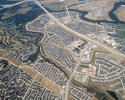Over the last year of the COVID pandemic, we’ve heard over and over that “we’re all in this together,” But the quality (and “quantity”) of public health services for poor and working-class families was an issue before the Covid-19 pandemic. read more »
Not Just Viruses: What Epidemic Cinema Teaches Us about Working-Class Vulnerability
- Login to post comments
Tale of Two Middle Classes in SoCal
Anyone who’s not concerned about the state of the middle class in SoCal should consider recent public notices on a pending auction of the Plaza Mexico retail center in Lynwood a wake-up call. read more »
The Transformational Role of Remote Work
One of the most significant effects of the COVID-19 pandemic has been a large increase in remote work. The ability to work from home has rescued the U.S. and the world from a steeper economic decline. Fortunately, information technology made it possible for a much larger part of the economy to continue working than otherwise would have been possible. read more »
- Login to post comments
The Dark Side of Japan's Bullet Trains
In 1964, the Japanese National Railways (JNR) was on a roll. The state-owned but largely unsubsidized company had just finished seven years of uninterrupted profits. Moreover, in 1964 it opened the Shinkansen (meaning new main line) between Tokyo and Osaka in time for the Summer Olympics. read more »
- Login to post comments
Government Has a Trust Problem. It Will Take Time to Restore
It’s well known by now that trust in American institutions has been in decline. Frankly, that’s in part deserved. It’s objectively the case, for example, that we responded far worse to the coronavirus than many other countries, most notably countries in East Asia. read more »
- Login to post comments
Fisker-Foxconn Could Get Region Deeper Into EV Era
If Fisker ends up building electric vehicles with Foxconn Technology Group in Wisconsin, as seems likely, the stunning new development could make a huge winner out of what was an economic-development disaster — and put the state back into the business of making cars for the first time in 13 years. read more »
Those millions of New 'Green' Jobs are Going to China and India
When U.S. Secretary of State John Kerry recently urged workers upset by the Biden administration’s decision to scuttle the Keystone XL pipeline to “learn to make solar panels”, he was oblivious to the fact that China and India dominate the solar panel manufacturing market. read more »
- Login to post comments
Economic Civil War
Our national divide is usually cast in terms of ideology, race, climate, and gender. But it might be more accurate to see our national conflict as regional and riven by economic function. The schism is between two ways of making a living, one based in the incorporeal world of media and digital transactions, the other in the tangible world of making, growing, and using real things. read more »
- Login to post comments
If Housing is a Human Right...
If housing is a human right, then it should no more be the vehicle for profiteering than other basic utilities of human existence such as the supply of water, education or life-saving medicine. If housing is a human right, then profiteering off housing is not only bad policy, it’s also immoral.
Among numerous groups in California and elsewhere, there is much talk about a “housing crisis.” Yet this talk is misleading, and if self-styled “housing advocates” want to invoke any crisis, they should more properly be discussing an “affordable housing crisis.” read more »
- Login to post comments
Demographia International Housing Affordability – 2021 Edition
The Urban Reform Institute and the Frontier Centre for Public Policy are pleased to present the 2021 edition of Demographia International Housing Affordability. This report provides housing affordability ratings, using the median multiple, a measurement of income in relation to housing prices, or 92 major markets (metropolitan areas) in eight nations for the third quarter of 2020. read more »
- Login to post comments






















